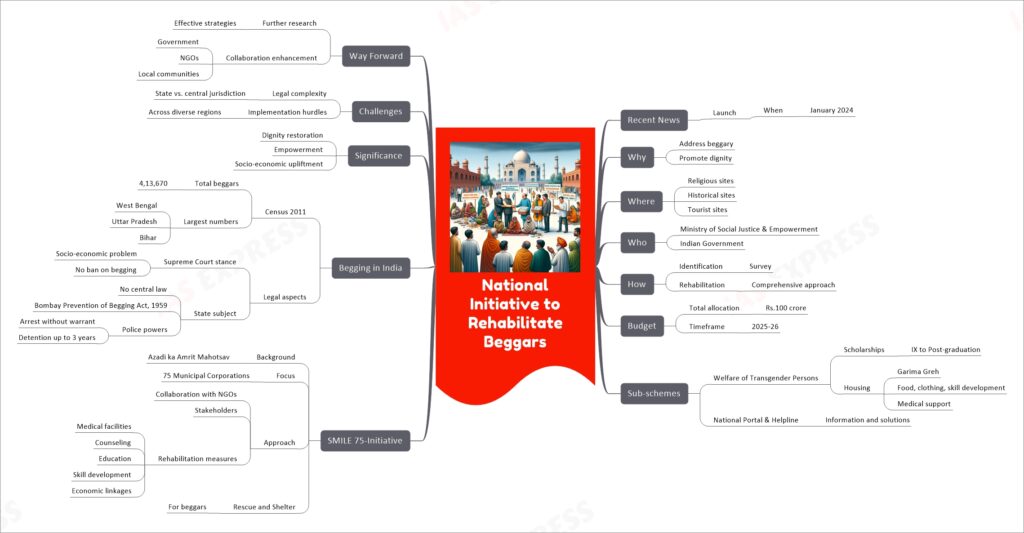National Initiative to Rehabilitate Beggars

The National Initiative to Rehabilitate Beggars, launched by the Indian Government in January 2024, is a comprehensive program aimed at addressing the issue of beggary at religious, historical, and tourist sites. With a budget of Rs.100 crore for 2025-26, it encompasses the SMILE 75-Initiative under the Azadi ka Amrit Mahotsav, focusing on rehabilitating beggars in 75 Municipal Corporations through collaboration with NGOs. The initiative includes various welfare measures like medical facilities, counseling, education, skill development, and shelter homes. Special attention is given to the welfare of transgender persons, including scholarships and housing facilities. Despite its ambitious goals, the program faces challenges related to legal complexities and implementation across diverse regions. It represents a significant effort to restore dignity and improve the socio-economic conditions of beggars in India.
If you like this post, please share your feedback in the comments section below so that we will upload more posts like this.

